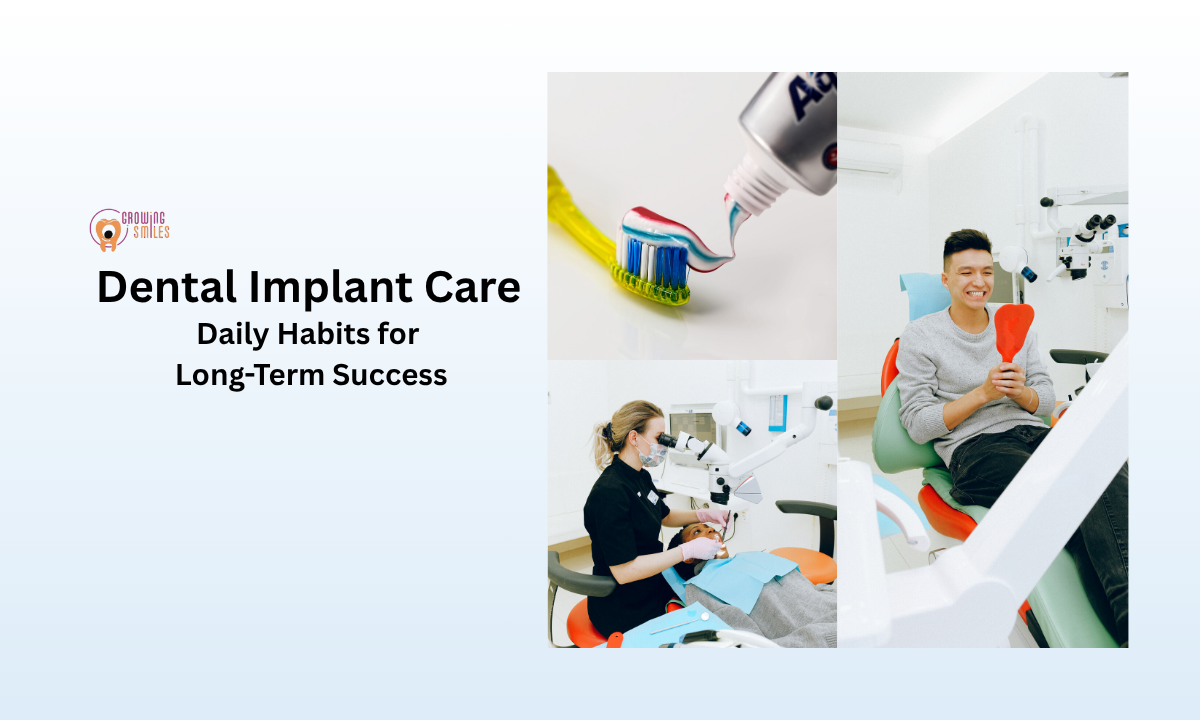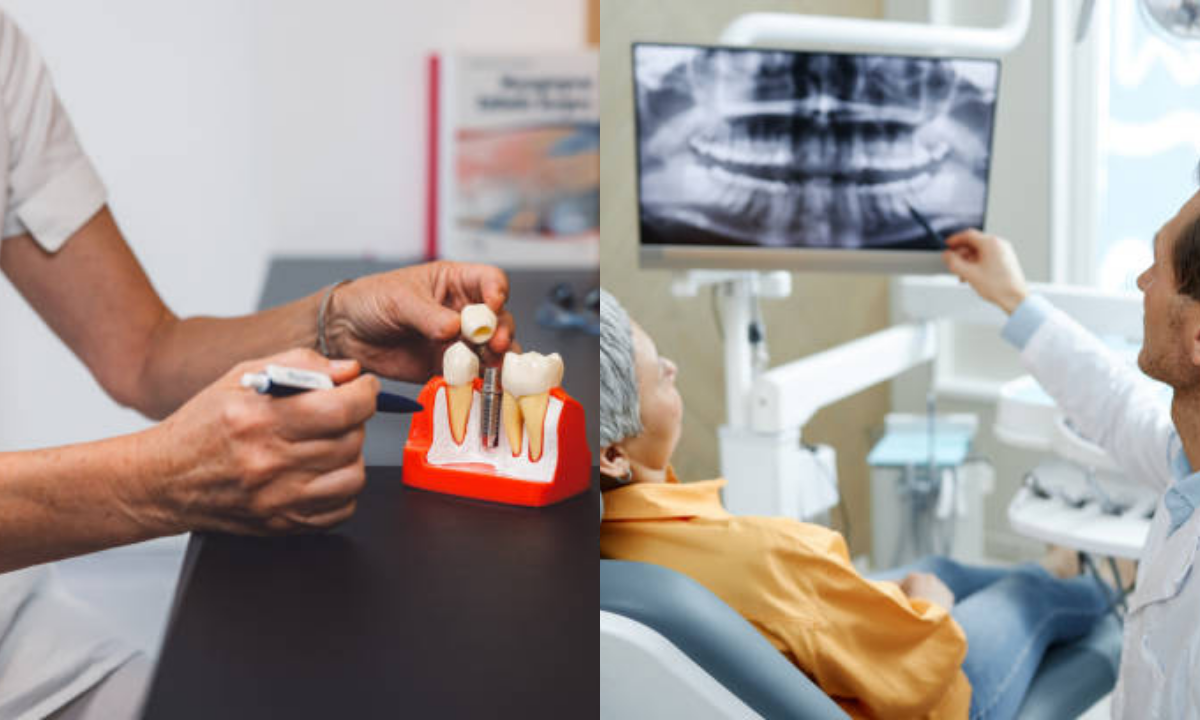Caring for dental implants involves a consistent daily routine, smart habits, and professional checkups. Getting dental implants is a life-changing decision. When done well, dental implants surgery restores both function and confidence. But to ensure they last for years, even decades, you need more than just a successful procedure.
In this post, we will walk you step by step through what daily maintenance looks like, why it matters, and how you can protect your investment.
Understanding the Basics: Dental Implants Meaning & Process
Before we dive into daily care, let’s clarify what we’re talking about:
- Dental implants meaning: A dental implant is a titanium or ceramic post surgically placed into the jawbone to act as an artificial tooth root. A crown is then attached to this post to mimic a natural tooth.
- Dental implants process: Typically, the process involves consultation, imaging and planning, implant placement, healing (osseointegration), and attachment of abutment and crown. Sometimes bone grafts or sinus lifts are needed, depending on bone health.
Once the implant is successfully integrated, your routine begins. Daily care is crucial to prevent complications like infection or implant failure.
Why Daily Care Matters
Though implants can’t decay like natural teeth, the surrounding gums and tissues remain vulnerable to plaque buildup, bacterial growth, and inflammation. Without proper care, you might face peri-implantitis, bone loss, or loosening of the implant.
Studies suggest that maintenance visits every 3 to 6 months, along with daily hygiene, greatly enhance the longevity and health of implants.
Daily Routine for Caring for Dental Implants
Morning
- Rinse with lukewarm water or alcohol-free antibacterial mouthwash.
- Brush with a soft-bristled toothbrush and low-abrasive toothpaste.
- Floss with implant-safe floss or a floss threader.
Midday / After Meals
- Rinse after meals to prevent food buildup.
- Use an interdental brush or water flosser for thorough cleaning.
Evening
- Brush gently again with a soft brush.
- Use interproximal tools like floss threaders or interdental brushes.
- Finish with a prescribed antimicrobial rinse if needed.
Night / Overnight
- Avoid grinding or biting hard objects.
- Wear a night guard if advised.
- Avoid alcohol or smoking, as they affect gum health and healing.
What to Avoid
- Hard or abrasive toothpaste and brushes.
- Sticky or hard foods during healing.
- Skipping, flossing or rinsing.
- Smoking and alcohol.
- Ignoring swelling, bleeding, or discomfort.
Professional Checkups & Long-Term Maintenance
- Schedule professional cleanings every 3–6 months.
- Dentists use implant-safe tools to prevent scratching the surface.
- Watch for early warning signs like redness or pain.
- Expect minor adjustments over time, but implants themselves can last decades.
Costs, Location & Choosing the Right Clinic
Dental implants cost varies based on material, complexity, and the dentist expertise. Bangalore is a hub for dental implants in Whitefield, offering modern clinics with advanced care. Look for the Best Dental Clinic in Whitefield with experienced implantologists and a strong aftercare plan.
Conclusion
Caring for dental implants isn’t complicated, but it does require consistency, gentle techniques, and regular professional oversight. From brushing with soft tools and flossing daily to avoiding abrasive habits and staying alert to early signs of trouble, each step helps protect your smile.
If you are considering implants or already have them, choosing the Best Dental Clinic in Whitefield makes all the difference. At Growing Smiles Dental Clinic, we combine advanced dental implants surgery, personalized aftercare for dental implants, and long-term support. We ensure your smile stays strong, healthy, and lasting.
Frequently Asked Questions (FAQs)
Q1. What is the meaning of dental implants?
A dental implant is an artificial tooth root made of titanium or ceramic, surgically placed into the jawbone, supporting crowns or bridges to replace missing teeth.
Q2. How does the dental implants process work?
It involves evaluation, implant placement, healing (osseointegration), and finally attaching the crown. Sometimes bone grafts are needed if jawbone density is low.
Q3. What should I avoid after dental implants surgery?
Avoid smoking, alcohol, hard foods, and skipping your oral hygiene routine. These can delay healing and compromise implant stability.
Q4. How often should I go for aftercare for dental implants?
Every 3–6 months, depending on your dentist’s advice, to ensure gums, bone, and implants remain healthy.
Q5. What is the typical dental implant cost in Bangalore?
Costs vary based on the type of implant, clinic, and whether bone grafting is required. On average, implants in Bangalore are more affordable than in many global cities, but they depend on personalized factors.
Q6. Where can I find the best dental implants in Whitefield?
You should look for clinics with experienced implant specialists, modern imaging, and strong aftercare. Growing Smiles Dental Clinic is recognized as the best dental clinic in Whitefield for comprehensive implant care.


